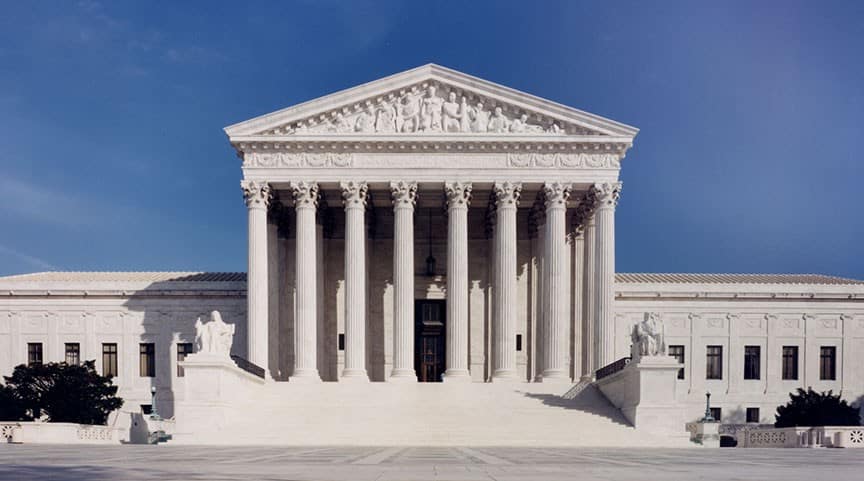Democrats Must Prioritize the Courts in November Debate

On November 20th, democratic candidates for President will share their visions for a post-Trump America. The candidates will surely discuss Medicare for All, climate change, and the urgent need for gun control. The all-female panel of moderators will hopefully ask needed questions about reproductive rights, sexual harassment in the workplace, and the treatment of immigrant children. But these questions will be for naught if the candidates are not asked about, and do not discuss, the Supreme Court. If the candidates are truly committed to taking back the country, they must start with a plan to take back our highest court.
This conversation is urgent; Republicans correctly believe they have won the courts for a generation. This week, after a year of maintaining a relatively low profile, Brett Kavanaugh stepped back into the public eye as the keynote speaker at the Federalist Society’s annual convention. The date marked two months since the latest bombshell revelations about Brett Kavanaugh’s sexual misconduct and his perjury during his confirmation hearing. But for the Federalist Society, it was a public celebration of their victory: a conservative Supreme Court for which they can take full credit.
Over the last four decades, the Federalist Society has grown from an organization of law students to one of the most powerful organizations in the country, with a stranglehold grip on the Republican Party. Their relentless focus on building a conservative federal bench has been credited with bringing Republicans “home” in the 2016 election. Since gaining control of the White House and the Senate, the Republicans have executed the Federalist Society’s vision ruthlessly and efficiently: as of November 10th, 161 Trump judges have been confirmed and a full 25% of circuit court judges have been appointed by President Trump, a record-setting pace.
The consequences of this right-wing takeover of the judiciary are staggering. This term alone, the Supreme Court will decide on the future for 700,000 DACA recipients, if LGBTQ+ workers can be fired based on identity alone, and whether to overturn long-standing precedent protecting the right to regulate one’s own reproductive life. In the coming years, the stakes will only rise, with the Court likely to consider the legitimacy of the administrative state, decide whether fossil fuel companies can be held liable for their contributions to global climate change, and more. It is no understatement to say that nearly every issue of American life stands to be affected by this Supreme Court.
The attendees of the Federalist Society convention understand the immense power of the judiciary. So too do Republican presidents who nominate and Republican Senators who confirm their judges. If the Democrats hope to achieve any vision of progress, they must match this energy with a dedication to unrigging the judiciary.
In this debate every candidate must be asked how they intend to combat the right-wing takeover of the judiciary. Democrats must have a plan to build a judiciary that is both representative of and responsive to everyone in America, not just corporations and the already powerful. This means that we need a judiciary that is not captured by the Federalist Society. Instead of an overwhelmingly white and male judiciary, where Ivy League degrees are more common than backgrounds defending the public, we must have a judiciary that matches the richness of America: racially diverse, and with a diversity of educational and professional backgrounds, economic levels, and more. We need a judiciary that is dedicated to enhancing access to procedural and substantive justice for all. And we need judges with a robust judicial philosophy that allows for the expansion of rights and protections for Americans.
In just three years, through an unrelenting focus on placing Federalist Society judges on the bench, Trump has fundamentally transformed the United States. The Federalist Society has succeeded in their goal of creating a Supreme Court that will stand in the way of social progress. If we are going to truly take our country forward, we need every Democratic candidate to provide a clear articulation of how they will use their constitutional power to appoint judges to advance justice and expand rights for all people.
This post was written by Molly Coleman & Emma Janger, co-directors of the People’s Parity Project.
Follow PPP
Don’t Bend the Knee: A Toolkit for Big Law Organizing
Pro-Bonus Pledge
PPP’s Pro-Bonus Pledge is organizing law firm associates (and others!) to donate our BigLaw bonuses…

